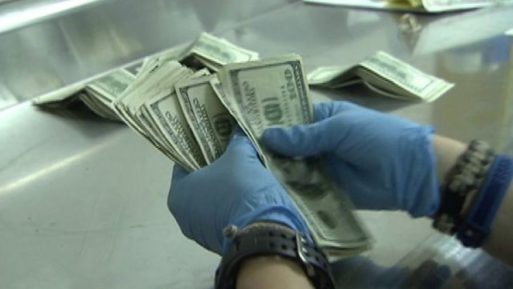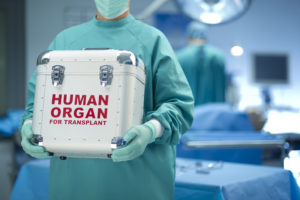Two bills currently pending in the New Jersey legislature would provide tax credits of $1,000 to organ donors in the state, Politico reports. The bills also authorize tax credits of $100 for blood donors who donate at least four times in a calendar year.

Credit: foxnews.com
The bills are the first in the nation to offer “no strings” payments to people who donate organs or, in the case of deceased donors, their estates. At present, 19 states give tax credits or deductions to living donors that range from $1,000 to $10,000. Additionally, the National Living Donor Assistance Center provides financial help to prospective donors who could not otherwise afford to take time off from work or to travel to a transplant center to donate.
But these programs only cover unreimbursed medical expenses and incidental costs such as travel time, lost wages, lodging and meals. Because the New Jersey bills offer what amounts to cash incentives, they may run afoul of the National Organ Transplant Act, which says paying for organs is illegal.
An Ethical Quagmire
Offering tax credits for organ donation is controversial. And some policy experts believe the practice unfairly targets vulnerable populations, especially the poor. In a statement to USA Today, David Fleming, president of Donate Life America, said the New Jersey bill “falls into the category of well-intentioned legislators looking to do something to increase the number of donors.” But he worries that the payments could be used as “bargaining chips” to incentivize families of deceased donors or even create a black market for organs in the United States.

Credit: express-k.kz
The National Kidney Foundation apparently agrees. In a statement on its website, it voices strong opposition to codifying financial compensation for body parts. “By treating the body as property, in the hope of increasing organ supply, we risk devaluating the very human life we seek to save,” the statement reads. “Offering money for organs can be viewed as an attempt to coerce economically disadvantaged Americans to participate in organ donation,” it adds.
At the same time, the NKF has consistently supported legislation aimed at defraying the cost of donation for living donors, who made up about one-third of kidney donors last year.
Will It Work?
Another problem with the legislation is that it is unlikely to do much good. According to a 2012 study examining the effect of tax breaks on available organs in the 15 states that enacted such legislation between 2004 and 2008, there was “no statistically significant effect of these tax policies on donation rates.” This may be because the amount of the incentives is too low. But the lead author of the study, Dr. Atheendar Venkataramani, thinks it may be a reflection of why people donate in the first place.
“It may be that this particular form of altruistic behavior is unrelated to finances,” he said in 2012. “Individuals who want to donate will commit to that regardless of cost, especially if they know and care for the recipient.”
Both bills are still in committee as of May 2017.

 New Jersey Introduces Bill to Give Tax Credits to Organ Donors
New Jersey Introduces Bill to Give Tax Credits to Organ Donors


 How Dare You Die Now!
How Dare You Die Now!

 “Help Me, Helen”
“Help Me, Helen”














